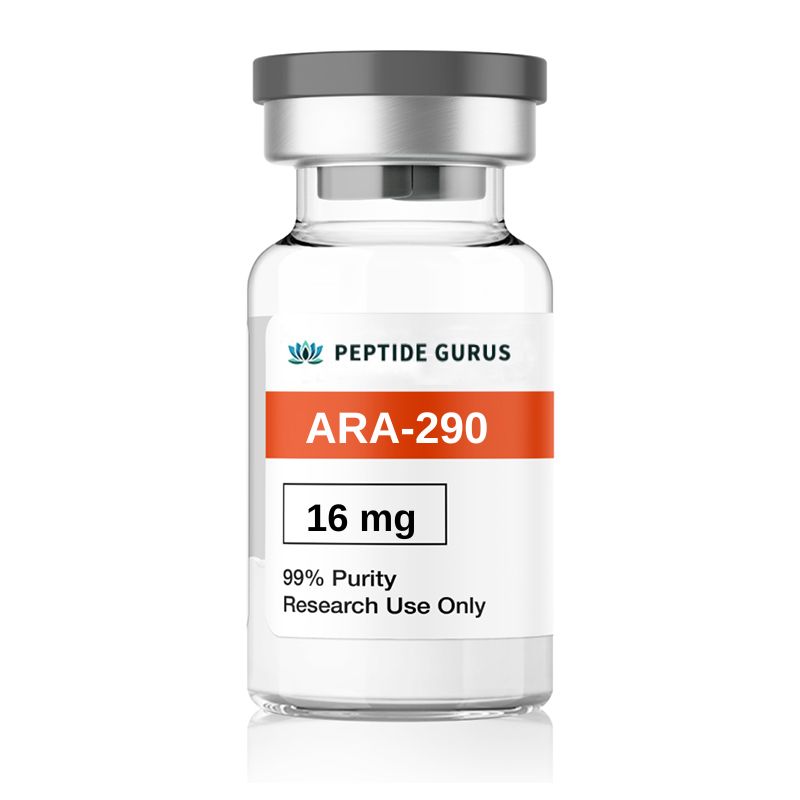



Categories: Peptides and Their Dosages
ARA-290 is a peptide derivative of erythropoietin (EPO) that has shown significant promise in decreasing inflammatory pathways and enhancing repair mechanisms through its action on the innate repair receptors. This peptide, also known as cibinetide, has demonstrated various beneficial effects in clinical research, including reducing HbA1c levels, improving cholesterol profiles, modulating neuropathic pain, and accelerating wound healing.
Product Usage: ARA-290 is strictly intended for use as a research chemical. It is designated for in vitro testing and laboratory experimentation only. Introduction into humans or animals is prohibited by law, and it should only be handled by licensed, qualified professionals. This product is not approved as a drug, food, or cosmetic.
Introduction
ARA-290 is a synthetic variant of the helix beta domain of erythropoietin, designed to harness the neuroprotective and analgesic effects of EPO without promoting red blood cell production. This peptide has progressed through phase II clinical trials and is preparing for phase III trials targeting several applications, including diabetes management and autoimmune sarcoidosis.
Comprehensive Overview and Research Applications
Neuroprotection and Neuropathic Pain
ARA-290 has emerged as a potent neuroprotective agent, offering significant benefits in diabetic neuropathy and potentially other neurodegenerative conditions. Unlike traditional erythropoietin, which can lead to excessive red blood cell production, ARA-290 targets only the protective pathways, alleviating pain without the associated hematologic risks.
Cardiovascular and Vascular Health
ARA-290’s effects extend to cardiovascular health, particularly in protecting against retinal ischemia—a common cause of blindness. By safeguarding endothelial cells and promoting their regeneration, ARA-290 could significantly reduce the burden of vascular diseases. Additionally, its ability to enhance the survival and function of endothelial colony-forming cells could revolutionize treatments for vascular injuries and ischemic conditions.
Inflammation and Immune Modulation
The peptide’s role in reducing inflammatory cytokines and modulating the immune response has implications for transplant medicine, particularly in the survival of transplanted islet cells for diabetes treatment. By inhibiting macrophage activation and cytokine production, ARA-290 could improve the outcomes of cellular transplants and reduce the incidence of rejection.
Tissue Protection and Wound Healing
ARA-290 has shown potential in speeding up the wound healing process, particularly in chronic conditions like diabetes, where slow healing leads to complications. Its ability to stimulate tissue repair and reduce scarring could make it a valuable asset in managing and treating skin injuries and surgical wounds.
PeptideGurus is a leading supplier of American-made research peptides, offering top-quality products at competitive prices. With a focus on excellence and customer service, they ensure a secure and convenient ordering process with global shipping.
CONTACT